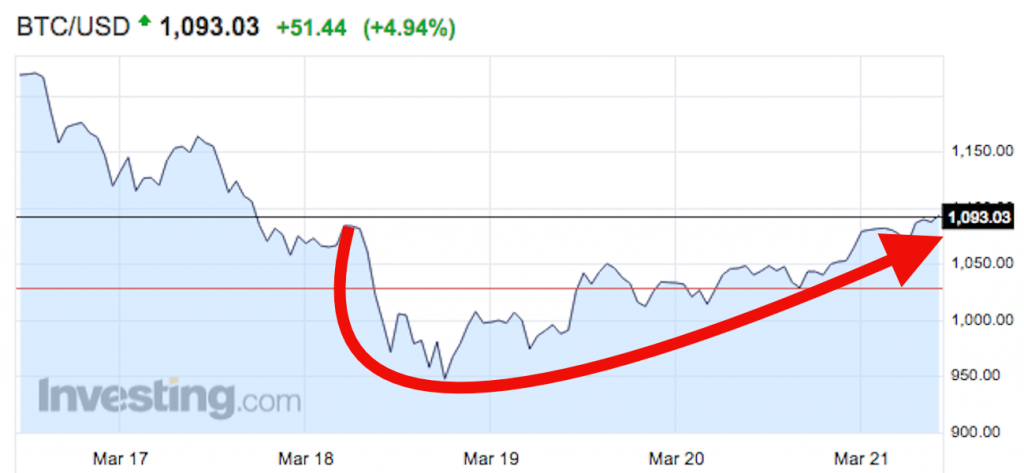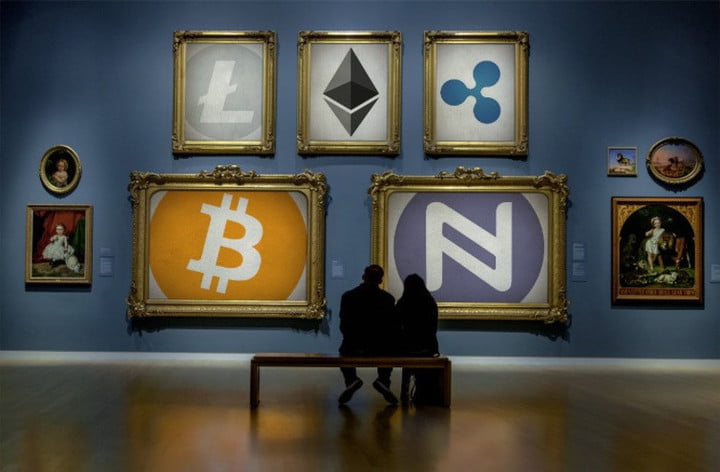
Study highlights growing significance of cryptocurrencies
More than 3 million people (three times previous estimates) are estimated to be actively using cryptocurrencies like bitcoin, finds the first global cryptocurrency benchmarking study by the Cambridge Centre for Alternative Finance.
While many members of the general public may have heard of "bitcoin", the first decentralised cryptocurrency launched in 2009, a new report from the Cambridge Centre for Alternative Finance (CCAF) paints a broader picture of "cryptocurrencies".
The report shows that cryptocurrencies — broadly defined as digital assets using cryptography to secure transactions between peers without the need for a central bank or other authority performing that role — are increasingly being used, stored, transacted and mined around the globe.
The Global Cryptocurrency Benchmarking Study gathered data from more than 100 cryptocurrency companies in 38 countries, capturing an estimated 75 per cent of the cryptocurrency industry.
Prior to this research, little hard data existed on how many people around the world actively use cryptocurrencies. The conventional wisdom has been that the number of people using bitcoin and other cryptocurrencies was around 1 million people; however, based on newly collected data, including the percentage of the estimated 35 million cryptocurrency "wallets" (software applications that store cryptocurrencies) that are in active use, the CCAF research team estimates that there at least 3 million people actively using cryptocurrency today.
While bitcoin remains the dominant cryptocurrency both in terms of market capitalisation and usage, it has conceded market cap share to other cryptocurrencies — declining from 86 per cent to 72 per cent in the past two years.
The study by the CCAF at Cambridge Judge Business School breaks down the cryptocurrency industry into four key sectors — exchanges, wallets, payments, and mining. Highlights of the findings are:
Exchanges
Cryptocurrency exchanges provide on-off ramps to cryptocurrency systems by offering services to users wishing to buy or sell cryptocurrency. This sector was the first to emerge in the cryptocurrency industry, and has the most operating entities and employs the most people. Currently, about 52 per cent of small exchanges hold a formal government license, compared to only 35 per cent of large exchanges.
Wallets
Wallets have evolved from simple software programs to sophisticated applications that offer a variety of technical features and services. As a result, the lines between wallets and exchanges are increasingly blurred, with 52 per cent of wallets providing an integrated currency exchange feature.
Payments
Cryptocurrency payment companies generally act as gateways between cryptocurrency users and the broader economy, bridging national currencies and cryptocurrencies. They can fit into two broad categories: firms that use cryptocurrency primarily as a "payment rail" for fast and efficient cross-border transactions, and firms that facilitate the use of cryptocurrency for both users and merchants. The study found that the size of the average business-to-business cryptocurrency payment ($1,878) dwarfs peer-to-peer and consumer-to-business cryptocurrency payments.
Mining
In the absence of a central authority, cryptocurrencies are created by a process called "mining" — usually the performance of a large number of computations to solve a cryptographic "puzzle". The study shows how cryptocurrency mining has evolved from a hobby activity into a professional, capital-intensive industry in which bitcoin miners earned more than $2 billion in mining revenues since 2009. The cryptocurrency mining map indicates that a significant proportion of publicly known mining facilities are concentrated in certain Chinese provinces.
The study found that more than 1,800 people are now working full time in the cryptocurrency industry, as more companies are engaged across various cryptocurrency sectors.
"Cryptocurrencies such as bitcoin have been seen by some as merely a passing fad or insignificant, but that view is increasingly at odds with the data we are observing," says Dr Garrick Hileman, Research Fellow at the Cambridge Centre for Alternative Finance (CCAF) at Cambridge Judge Business School, who co-authored the study with Michel Rauchs, Research Assistant at CCAF.
"Currently, the combined market value of all cryptocurrencies is nearly $40 billion, which represents a level of value creation on the order of Silicon Valley success stories like Airbnb," Dr Hileman says in a foreword to the study. "The advent of cryptocurrency has also sparked many new business platforms with sizable valuations of their own, along with new forms of peer-to-peer economic activity."
David Ogden
Entrepreneur
Source: University of Cambridge
Alan Zibluk Markethive Founding Member

 Bitcoin is roaring back
Bitcoin is roaring back










 Introduced in 2008 as the technology underpinning Bitcoin, a digital currency that is created and held electronically without any central authority, blockchain is a secure digital ledger for any kind of data. It simplifies record keeping and reduces transaction costs.Its range of applications in commerce, finance and potentially politics continues to widen, and that has triggered a debate around how to regulate the tool.
Introduced in 2008 as the technology underpinning Bitcoin, a digital currency that is created and held electronically without any central authority, blockchain is a secure digital ledger for any kind of data. It simplifies record keeping and reduces transaction costs.Its range of applications in commerce, finance and potentially politics continues to widen, and that has triggered a debate around how to regulate the tool.